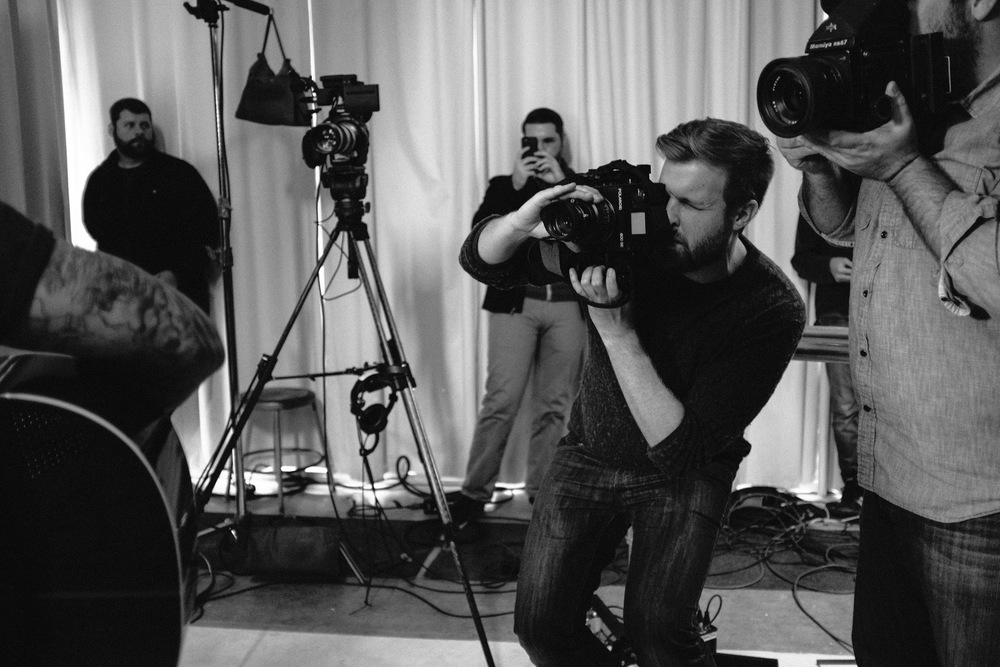
Ryan Booth is living proof that there is always time to find your passion.
Equal parts music and film lover, Booth has been a driving force in showcasing some of the best of both worlds. Hailing from Houston, TX, the strong moods and emotional impact within his films speak volumes, while galvanizing the viewer to take action and pursue their own vision. Currently debuting his new project: SerialBox, he celebrates and supports his local music scene by sharing musicians stories, while featuring intimate performances, all creating an amazing collaboration of sight and sound. Booth’s work is a catalyst for creativity and that is a powerful element in creating good work in the world.
We chatted with Ryan about developing his voice in filmmaking, finding fortune in happy accidents while filming and the power of music as a vehicle in picture.
M: When did you know you wanted to be a filmmaker?
RB: I’ve always, always, always been a fan of movies. I’ve always been interested in who made what and with whom. But, honestly I didn’t have a sense of how I could be involved in making films until I was much older. I knew that I wanted to do something “creative” (a term I hate), but wasn’t sure if it was music or acting or photography or writing. I ended up working in Nashville for several years as an audio engineer, then as a photographer. I ended up in Houston for my wife’s grad school and while there, the 5Dmk2 came out. I bought one for photography and was curious about the video capabilities. It was the first non DV tape video camera I’d seen and I was curious how I might be able to use it. I entered a contest in 2010 called The Story Beyond the Still which was a Canon and Vimeo partnership. It was a multi-chapter narrative story. Each chapter directed by a different filmmaker. I made a short film for the contest and amazingly, won my chapter. It was the first short I’d ever made. The “prize” was that all the chapter winners were flown out to LA to write and be on set for the final chapter. It was a real shoot. 5-6 Semi trucks worth of gear, 100 people on set, the whole thing. I was absolutely mesmerized. I had no idea this was what that world could look like and I was instantly hooked.
I came back to TX from that experience and quit everything else cold turkey. No more audio, no more photography. I knew I wanted to be a filmmaker.
M: What’s your favorite moment of the filmmaking process?
RB: There is a moment, when you’re making a film, when the pieces all align and multiply and for just a moment you can feel the hairs on the back of your neck stand up. It’s this tiny moment of transcendence, being able to experience the story, for a brief moment, as the audience will. Those are fleeting moments, but are great guideposts as you put films together that signal you’re on the right track. Plus, it’s a beautiful thing to experience all by yourself, before anyone else will. I love those culminating moments.
M: What do you think defines a filmmakers’ “voice”?
I’m not exactly sure, because it’ll be different for everyone. When I was in my early 20s, I got accepted into this photojournalism workshop in Cambodia. A dozen of us were invited to create photo essays under the mentorship of a hugely famous photojournalist. We would work all day and at night, we would bring him the images and he’d help us craft the narrative. I remember on the last day of the workshop (I still had no idea what I wanted to do) I was asking him if he thought I was good enough to get in to a good grad program in photojournalism. He told me, “Ryan, I can sift through this pile of images right now and pick out which one’s are yours. It’s not a style I see much of in photojournalism. DO NOT go to grad school. They’ll take it from you. You have the tiny beginnings of your voice. DO NOT let anyone take it from. Just keep shooting…”
It’s stuck with me all these years. You have to fight that battle with yourself…to not let other people define the way that you see things, the way you want to say things. It’s hard. Current style can be persuasive, lucrative gigs can be persuasive, but ultimately, you’ll have to stay true to yourself no matter what it costs. I truly believe that’s the only way you’ll ever have a “career.” (Which just means that you don’t have to quit doing this and go get a “real job”)
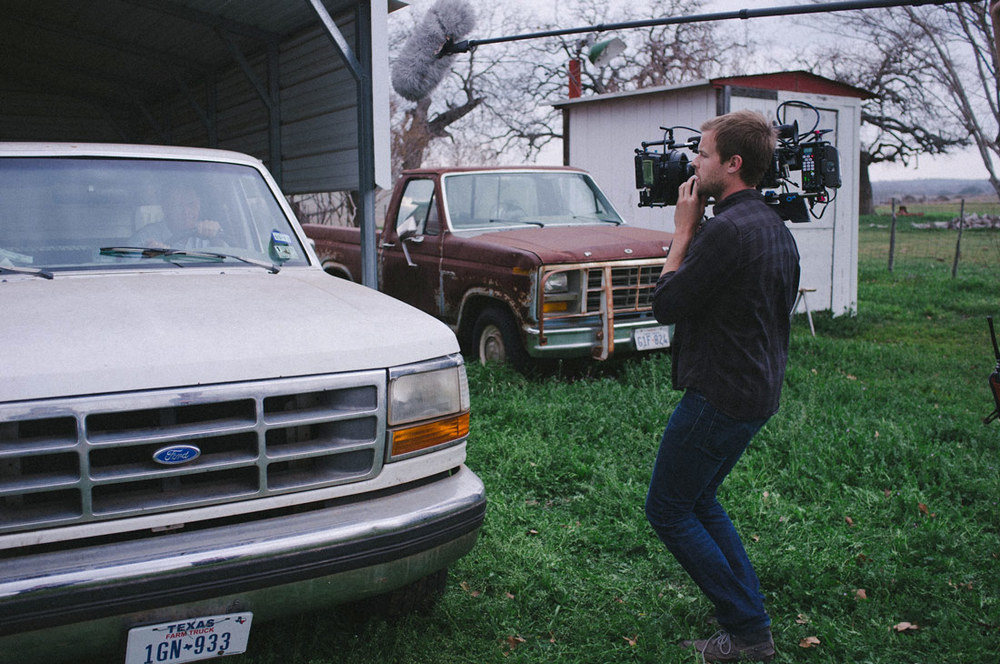
M: How did SerialBox come into fruition?
RB: SerialBox is my completely naive attempt to learn filmmaking. When the 5D came out and I was dabbling, I called some friends who already had been doing video and asked them all to come to a studio I shared with a few guys. We set up a bunch of cameras. I knew some musicians and knew how to engineer, so I invited a band to come play some tunes, my other buddy put some lights up, and I used that time to learn. Coverage, lighting, movement. That first session we shot was with a band called Paper Route and it instantly told us we were on to something.
M: Did you have a clear vision in mind? Or do you allow things to unfold when you film?
RB: I have a clear vision as to what I want the audience to feel. How we get there, is definitely open to the way the set moves on the day. I’ve found that a “plan” is very necessary and critical to begin the journey of telling your story, whatever it may be. However, it’s 100% likely things you didn’t anticipate will come up and you have to be willing to let the plan go. Just keep a firm grasp on what you want people to feel, and the meandering way you get there will be full of happy accidents.
M: Favorite moment off the screen?
RB: I want my sets to be memorable, safe places, where people feel like they can be themselves and try new things. I’m not too rigidly interested in the outcomes. I feel like if you can focus on the process of making these things, the byproduct will be good work. Meaning, if my crew walks away from the day thinking I was a total jerk or that they didn’t feel like they had something to contribute, I don’t care if we end up winning an Oscar, it will have been an abject failure. The ends do not justify the means on my sets. So, all that to say, many times, the majority of the favorite moments are off screen. Or the moments it takes off screen to get a real moment on screen. That’s the real work.
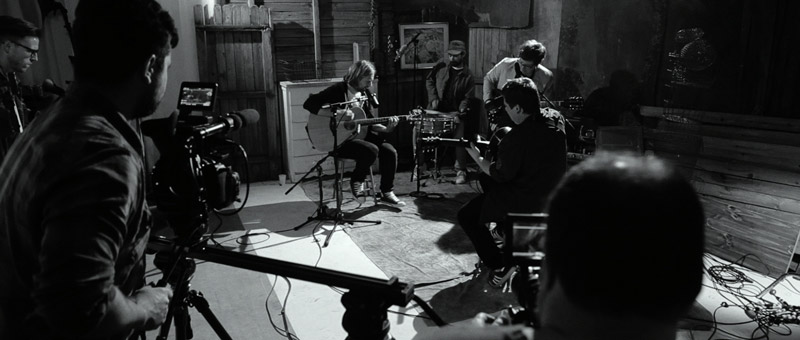
M: Were there any happy accidents during any sessions?
RB: We are in the middle of shooting a pilot for SerialBox that we’re calling SerialBoxTV. We’re doing an hour long show with each episode being about one artist. We shot the studio portion of the episode with Noah Gundersen a few days ago. I had pulled some images of old 60s recording studios that I was using as a reference when we were building sets. We were using sheets of pegboard and were distressing them. The thought being that we would bring in some old gear, and it’d feel like Dan Winter’s version of an old studio.
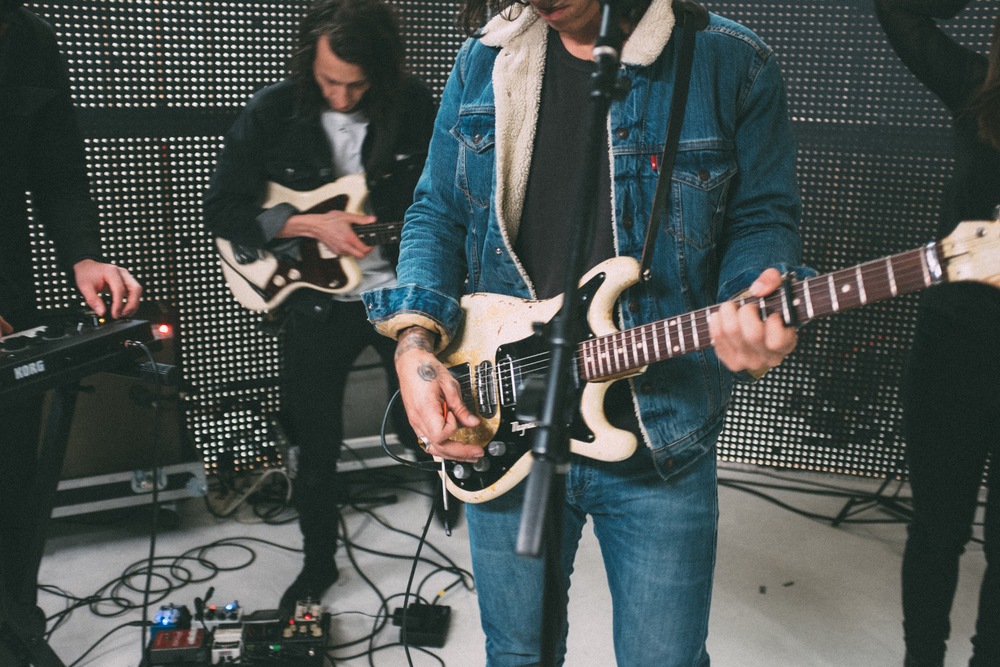
Except, when it came down to it, it was terrible. Just not coming together at all. It felt hodge podge and sloppy. We painted the pegboard a slate color to try and change the tone, but it only got worse. We’d just successfully funded a kickstarter to do this project and I was freaking out. “Everyone is going to laugh at us and how bad this is. And they’re going to want their money back.”
I had a big HMI up on a combo behind one of the set walls and was going to raise it up over top to use as a backlight. I kicked it on and then walked back around front to wait for it to warm up before raising it. I had a couple other guys up there helping out and we all turned and looked. The HMI kicking through the pegboard was incredible looking. Like, incredible. It looked kind of like an LED wall, but the paint had globbed up some of the holes. And you could see our framing and the stuff behind the set. It looked weird and totally awesome. We all looked at each other. Ok, previous plan out the window.
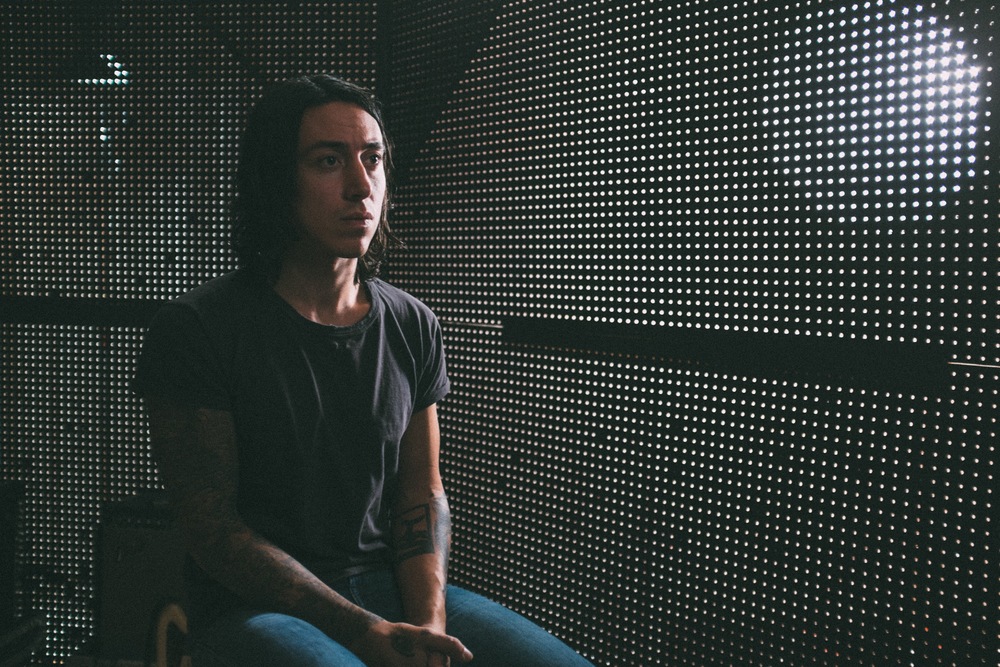
We completely re-approached the set and ultimately the lighting. It was terrifying to change plans so drastically, but it was the right call. It just felt like I wanted the session to feel. Those kinds of happy accidents are waiting for you all the time, if you’re willing to look for them.
M: What role do you feel music has in film?
RB: Music is everything. Think about the most moving, lasting images you have in your mind from the most iconic films ever made. Is there a single moment in your mind that isn’t punctuated by music? I’d bet that there’s not a single one. Music is the thing that takes you there. It’s the vehicle. It can’t be underestimated.
M: When did you know that you have something ready to show the world?
RB: I know it’s ready when a handful of things have happened: 1. I’ve had that moment I described above, that transcendent moment on my own. That’s partly how I know it’s ready for an audience. 2. After I’ve shown it to a handful of friends, there is almost always incredibly glaring things to fix. Things I brushed aside when it was just me watching are suddenly glaring. After it’s passed those two tests, it’s time to ship.
Which, all of that is not to say that I’m happy with the final product. I’m almost never happy with it. I see the seams. I see all of the things I could have done better. I see all the ways I was being derivative or scared or lazy. I see my shortcomings, my areas of improvement. But, that is all irrelevant to actually shipping. If I waited until I was perfectly happy with my films or projects, they would absolutely never get seen by anyone. I’d never ship. And I’ll tell you this. That’d be a supremely arrogant thing for me to do. It’s never going to be perfect. That’s not the criteria for deciding if it’s really ready to show to the world. Work hard, trust some friends to help you see the forest for the trees and then for the love of god, put it out there.
M: How do you feel music is misused in projects?
RB: I feel like music has to be earned. You can’t rely on music to do the heavy lifting for you…it should be enhancing and bolstering what you’re already accomplishing with the cinematography, the acting, the script, the pacing, the cuts, the film. You can’t just slap a song on it and hope it does the work for you. I tend to like a lot of music in my films, but I can tend towards overuse. Nothing is worse than a piece of music emotionally dictating a feeling you haven’t earned.
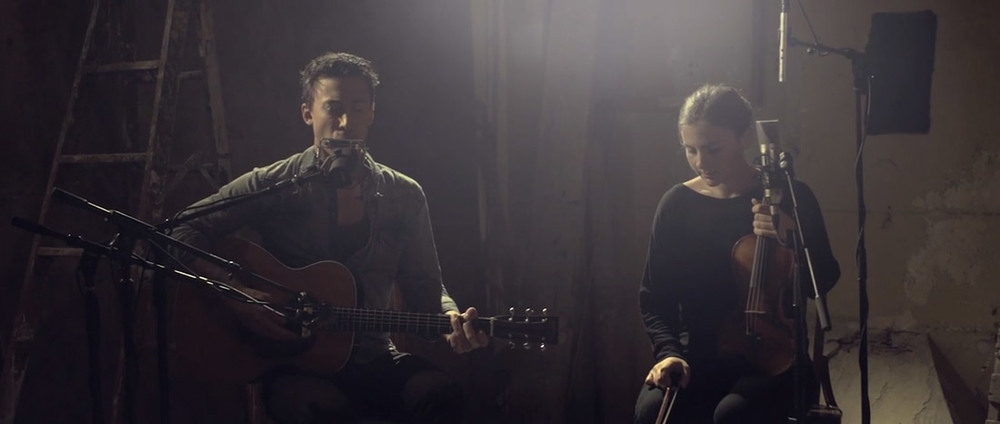
I DPd a feature a couple years ago and when I finally saw the cut at the festival when it premiered, I was amazed. There were only two music cues in the entire 90 minute film. The directors were incredibly restrained. It was a deep, complex, emotional story and they felt like they would be heavy handed to have any more music than that. I’ll tell you what; they were 100% right. Not a dry eye in the theater during either of those sequences. They’re incredibly memorable as a result.
That’s the trick, I’d say.
M: What’s coming up?
RB: I’m currently at an airport heading to Oklahoma for a big multicam live event that SerialBox is producing. Then off to Charlotte to DP a music video. Then off to Seattle to continue production on the SerialBoxTV pilot. Then to Austin for Masters in Motion, then off to LA for a couple days on a TV show my friend is a writer on. It’s been a crazy year and one I’ve been very, very thankful for. I’ve got a short film that I’m sitting on that I really want to direct. That’ll be what I start out 2015 working on.
YOU MAY ALSO LIKE…
Field Notes: An interview with Camp4 Collective’s Tim Kemple
Field Notes: An interview with Filmmaker, Ben Fullerton
Field Notes: An interview with Ben Allen of More Like Georgia

I very much enjoyed learning about Ryan’s start in video and loved the story (and awesome frame grab!) of the pegboard. Thanks for putting this content out there -George